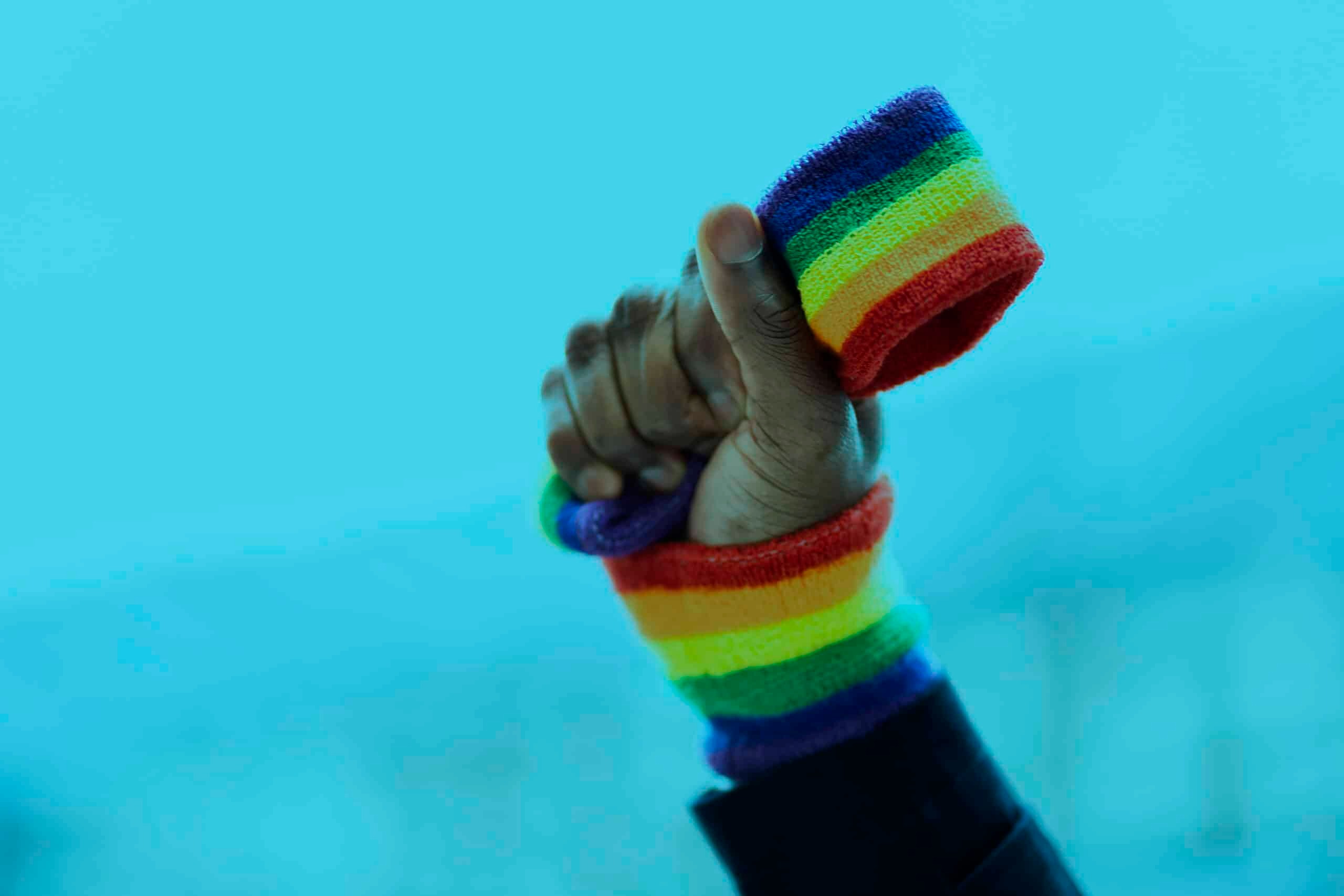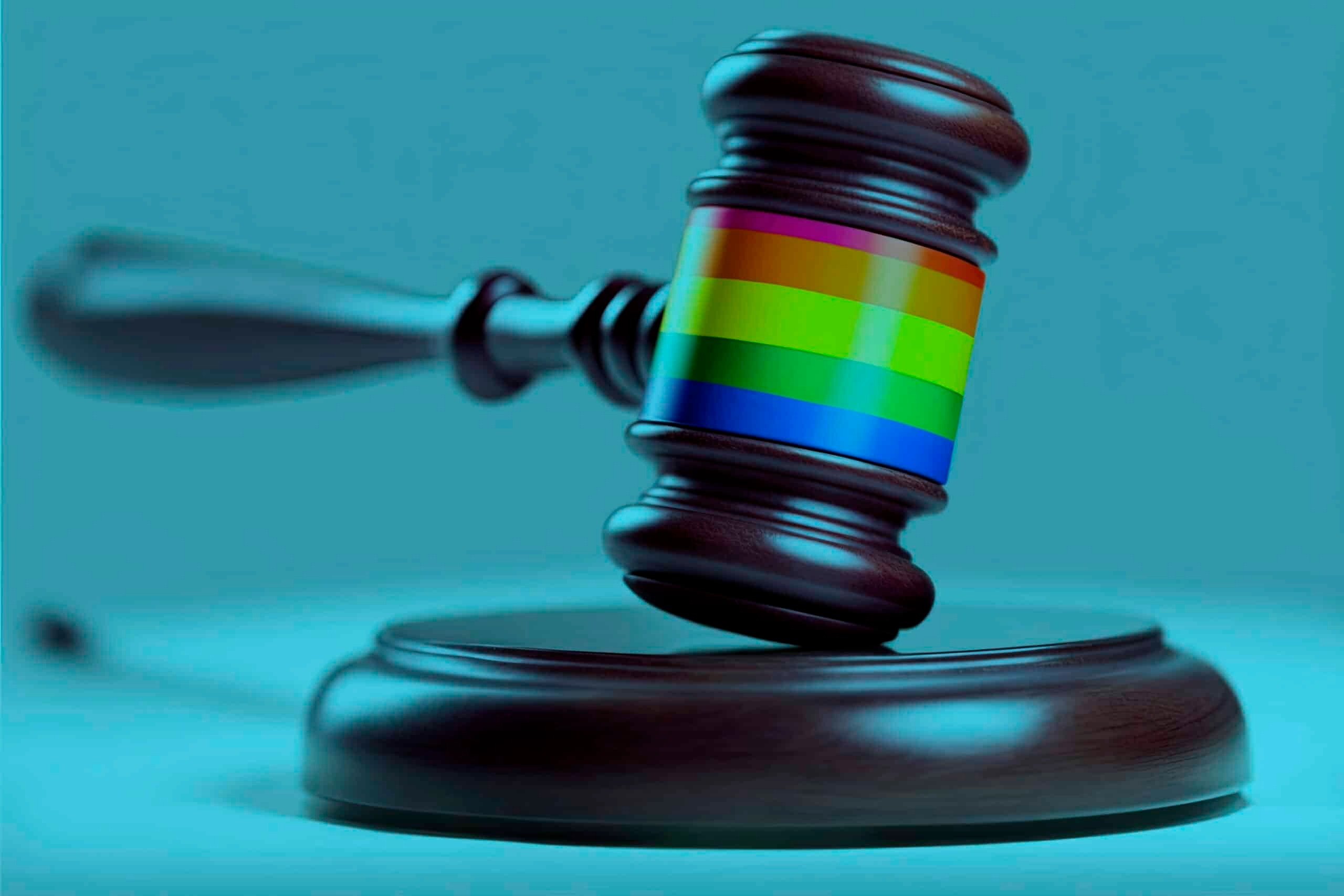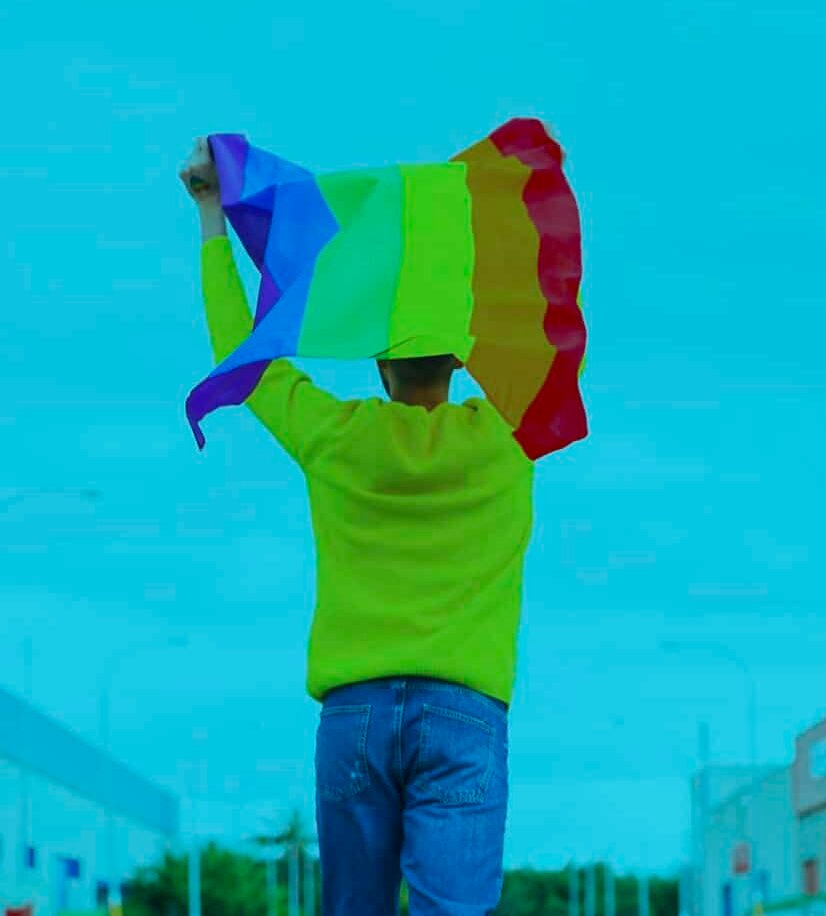LGBTQIA+ asylum
seekers and refugees
The term LGBTQIA+ is a term that refers collectively to people who are lesbian, gay, bisexual, transgender, queer, intersex, and/or asexual. People leave their countries of origin for many reasons. If you are forced to leave because your family, community or the government does not accept you because you belong to the LGBTQIA+ community, you may qualify for refugee status in South Africa if you meet the definition of a refugee in terms of South Africa’s Refugees Act 130 of 1998. This e-pamphlet will explain your rights to get protection as a refugee in South Africa, how to request legal assistance from the LRC and how to access other services from refugee service providers.
REFUGEES ACT
CLAIMING ASYLUM

When you cross the border into South Africa with the intention of seeking asylum, you must declare this at your point of entry. You will be issued a transit visa which is valid for 5 days. It is within these 5 days that you must report to a Refugee Reception Office (RRO).There are RROs in the following cities:
- Cape Town
- Durban
- Port Elizabeth
- Pretoria
- Musina

At the RRO, you will be assisted by a Refugee Reception Officer to complete an application form. This assistance is free. Please do not make use of the service of anyone outside the RRO. You should avoid taking advice from any non-governmental official claiming to guarantee getting you documentation.
- Information required for the completion of this application includes -details of your identity, family composition, education, employment history, military involvement, criminal record, and why you are seeking asylum in South Africa. This information will be used later when you are interviewed in the final assessment of your asylum claim. You could be rejected for asylum if any of the details you provided are not true or you change your story when interviewed by DHA in this interview.
- After the interview, your fingerprints and a photo of you will be taken and you will be allocated a unique file number. This number acts as an identity number through which you can access services in South Africa.

Once your application is made, you will be issued with an Asylum Seeker Temporary Permit. This document allows you to legally reside in South Africa and to work, study, and access other social services such as social security and healthcare. This permit is usually valid for 6 months and is renewable until your refugee claim has been decided.
- You have the right to have the asylum seeker permit renewed for the duration of the processing of your claim by the Department of Home Affairs by returning to the RRO that gave you your first permit and/or emailing the relevant email address to request an extension. It is your responsibility to renew your permit before it expires. The DHA will only condone your failure to renew your permit if there were serious reasons why you could not renew your permit such as being in hospital or being arrested. You would need proof from the hospital or the police.

During your time living in South Africa with an Asylum Seeker Permit, you will be invited for a refugee status determination hearing. This hearing is conducted by a Refugee Status Determination Officer (RSDO), an employee of the Department of Home Affairs. This takes the form of an interview, and its purpose is to obtain information to assess if you are eligible for refugee status. All information shared during this interview is confidential. You bear the onus of proving your refugee claim. Any information that you can provide will be helpful to prove that you have a valid refugee claim.
This information can include:
- Any documents that you may have to prove your identity: passports, local identity document, driver’s license, photos, school records, letters, etc.
- Any documents that can support your claim: newspaper articles, photos, extracts from social media, copies of text messages etc.
![]()
RIGHTS



You have the right to have your sexual orientation and gender identity respected. If you are for some reason arrested, you have the legal right for your gender identity to be respected – if this is not the case you are being unfairly discriminated against.


When you are having your refugee status determination hearing these are some important things to note:
DETENTION RIGHTS OF ASYLUM SEEKERS AND REFUGEES
![]()

To be informed of the reasons for your detention and your rights in detention.

To be detained in conditions within minimum standards of dignity and human rights, including adequate accommodation, food, reading material, and medical treatment.

![]()
HEALTHCARE
![]()

As an LGBTQIA+ refugee or asylum seeker, you also have the right to healthcare. You have the right to free primary emergency healthcare services

If you are pregnant or breastfeeding or have a child under the age of 6 years, you are eligible for free healthcare services, including hospital visits.

If you need to go to the hospital, then you will be required to pay on a sliding scale based on your income. If you do not work, you do not need to pay for these services. However, you will need to bring proof of your lack of income through an affidavit.


There are specific clinics in South Africa that provide gender-affirming healthcare to transgender individuals. These healthcare centers provide gender-affirming healthcare and their details are as follows:

In Cape Town, free gender-affirming healthcare for transgender individuals can be accessed at Ivan Toms Centre for Health (Ivan Toms) and Wits Reproductive Health and HIV Institute (Wits RHI). Transgender individuals based in Mbombela, Pretoria, Tembisa, Pietermaritzburg, and Durban can access gender-affirming healthcare through the Aurum Institute.
WHERE TO GO FOR LEGAL ASSISTANCE?

Scalabrini
(Cape Town)
Email: info@scalabrini.org.za
Telephone: 021 465 6433

Lawyers for Human Rights
(Pretoria, Johannesburg, Durban)
Email: info@lhr.org.za
Telephone:
012 320 2943 (Durban)
011 339 1960 (Johannesburg)
031 301 0531 (Pretoria)

UCT Refugee Rights Clinic
(Cape Town)
Email: Refugeelawclinic@uct.ac.za
Telephone: 021 650 3775

Nelson Mandela University
Refugee Rights Clinic
(Port Elizabeth)
Email: Linton.harmse@nmu.ac.za
Telephone: 041 504 4705
WHERE TO GO FOR VOCATIONAL TRAINING AND PSYCHOSOCIAL SUPPORT?

Adonis Musati
(Cape Town)
Email: admin@adonimusatiproject.org
Telephone: 021 762 4886

Jesuit Refugee Services
(Johannesburg and Pretoria)
Email: communications@jrsap.org
Telephone: 011 618 3404

Refugee Social Services
(Durban)
Email: admin@refugeesocialservices.co.za
Telephone: 031 001 7293

Sexual and reproductive health rights
We aim to raise awareness of the sexual and reproductive health rights of girls and the crucial role of education in these rights to empower girls to make informed decisions about their bodies and health.
We have created four resources on sexual and reproductive health rights in education for female learners.
- Our research report considers the importance of education on sexual and reproductive health rights and protection from gender-based and sexual violence and evaluates the efficacy of existing policies and curriculum content.
- Our research report can be downloaded here.
- Our training manual is aimed at teaching girl learners about their sexual and reproductive health rights. We provide child-friendly and scientifically accurate information on topics such as what it means to have sexual and reproductive rights, puberty, consent, sexual assault, HIV, and other STIs.
- Our training manual can be downloaded here.
- Our factsheet on SRHR can be downloaded here.
- Our toolkit captures the content of the training manual, in a simplified user-friendly video format and can be downloaded here.
The right to protest
Know your rights: the right to protest
The purpose of this project is threefold: to raise awareness about the laws regulating the right to freedom of assembly and freedom of association, how people can exercise these rights and how to lay a complaint against the state or the police in the case of police brutality experienced while participating in a gathering or protest.
Guidelines on right to freedom of assembly and association
The right to protest is a fundamental right in South Africa and serves as a bedrock to our democracy. The Constitution of the Republic of South Africa confirms the right to protest. This right is envisaged in section 17 of the Constitution. Everyone has the right to assembly, to demonstrate, to picket, and to present petitions. This right is regulated by the Regulations of Gatherings Act 205 of 1993. The RGA works on the basis that citizens and organisations have a right to protest and then sets out circumstances in which this right may be exercised.
Given the importance of the right to protest in South Africa, the LRC has developed a toolkit to provide information and educate on the content of this right to protest. The toolkit is intended to serve as a resource for use by organisations, students, activists, or any other persons who wish to partake in protests, register their community organisation, or learn more about the right to freedom of association and the right to freedom of assembly in South Africa. Download the Toolkit Here
A guide for organisers and conveners
Who can convene a protest?
According to South African law, everyone has a right to protest, including persons who are under 18 years. Anyone can convene a protest.
Difference between demonstration and gathering The Gatherings Act differentiates between a ‘gathering’ and a ‘demonstration’.
A demonstration is defined as including ‘any demonstration by one or more persons, but not more than 15 persons, for or against any person, cause, action or failure to take action.
For this type of protest (demonstration), you do not need to file a notice.
A gathering is defined as ‘any assembly, concourse or procession of more than 15 persons in or on any public road or any other public place or premises wholly or partly open to the air. For a gathering, you will need to file for a notice before convening.
When to file a notice?
According to the Gatherings Act, the convener of gatherings must give notice of the gathering seven days before the proposed date to gather. The notice must be given to the local authority. Your duty is only to give notice and you do not need to wait for a response from the responsible officer, you may proceed with a gathering as long as you give prior notice. FILING NOTICE IS SUFFICIENT, YOU NEED NOT RECEIVE A RESPONSE.
NOTE: Failure to give notice is no longer an offense. If you get arrested for not giving notice, the arrest is unlawful.
Stop torture project
Put a stop to torture
The purpose of this project is to raise awareness about torture and the use of certain tools that are used for the advancement of torture.
The main objective is to enable victims or other persons to lodge a report on behalf of victims.
This project aims to prevent future incidents of torture and ill-treatment, increase accountability for prior incidents and contribute to reparation for survivors through a distinctive focus on the use and trade of the tools of torture used to perpetrate such acts.
The project is funded by the EU’s European Instrument for Democracy and Human Rights (EIDHR) under its Prevention of Torture strand of work, and runs for three years from April 2018 to March 2021.

